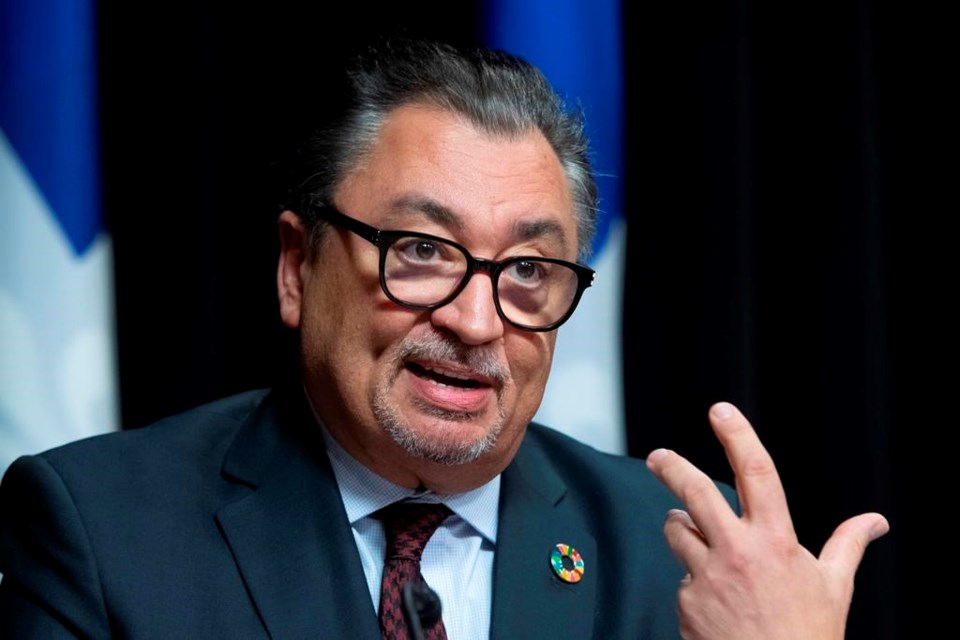MONTREAL — Quebec reported its first death from COVID-19 on Wednesday as Premier Francois Legault sought to reassure citizens the province is ready to confront the pandemic.
Legault told a briefing on Wednesday that an elderly woman from the Lanaudiere region, northeast of Montreal, died of the disease linked to the novel coronavirus.
"The battle will be hard, the battle will be long, but I am sure we can win," the premier said.
Dr. Horacio Arruda, Quebec's director of public health, said the woman who died was living in a seniors' home with underlying health issues and had been in contact with people who had recently travelled.
Authorities have communicated with those who'd come into contact with her.
The province now has 94 confirmed cases, including six people who are hospitalized and four who are in intensive care. Authorities said one person in the province has recovered.
Arruda thanked elderly Quebecers for making sacrifices after the province asked anyone 70 and older to stay inside.
He noted that it is only after roughly 12 days of isolation and social distancing that a positive impact will be observed, provided recommended measures are followed.
And Legault assured the province is ready for when the situation reaches its peak.
"I want to tell Quebecers, I understand there's a lot of anxiety right now," Legault said. "Don't panic. The health-care network is ready. Right now we have six people in hospital, and we have 2,300 beds waiting in case we need to use them for the coronavirus."
The province continued to build up its testing infrastructure in the hopes of being able to administer 5,000 tests daily as of Friday.
Arruda also urged the public not to use masks to ward off COVID-19.
He said those important resources should be reserved for medical personnel and people suffering from the disease in a video published Wednesday with Arruda asking Quebecers to stick to the advice from health authorities — notably washing their hands.
Arruda said the mask is reserved for treatment so that someone who is sick doesn't contaminate others and the general population for prevention purposes could cause a shortage in the health network.
"Wash your hands, it's important," Arruda said. "Using the mask gives a false impression of security and I think it's more dangerous than washing your hands."
This report by The Canadian Press was first published March 18, 2020.
Sidhartha Banerjee, The Canadian Press

